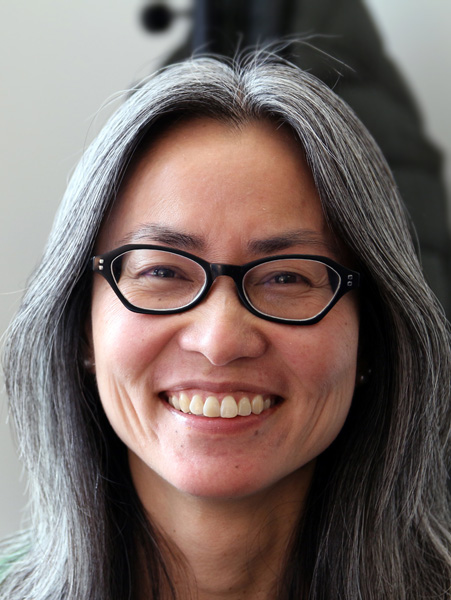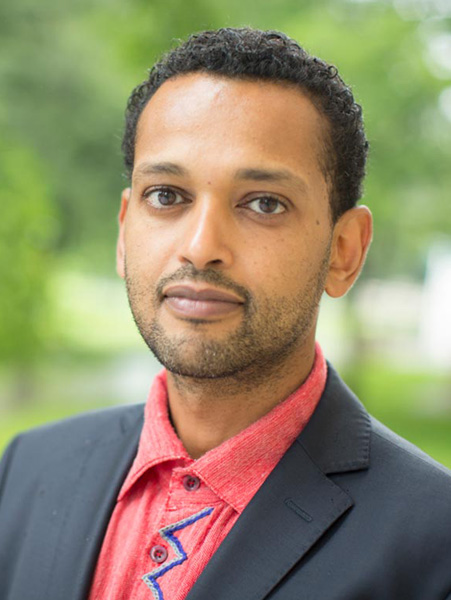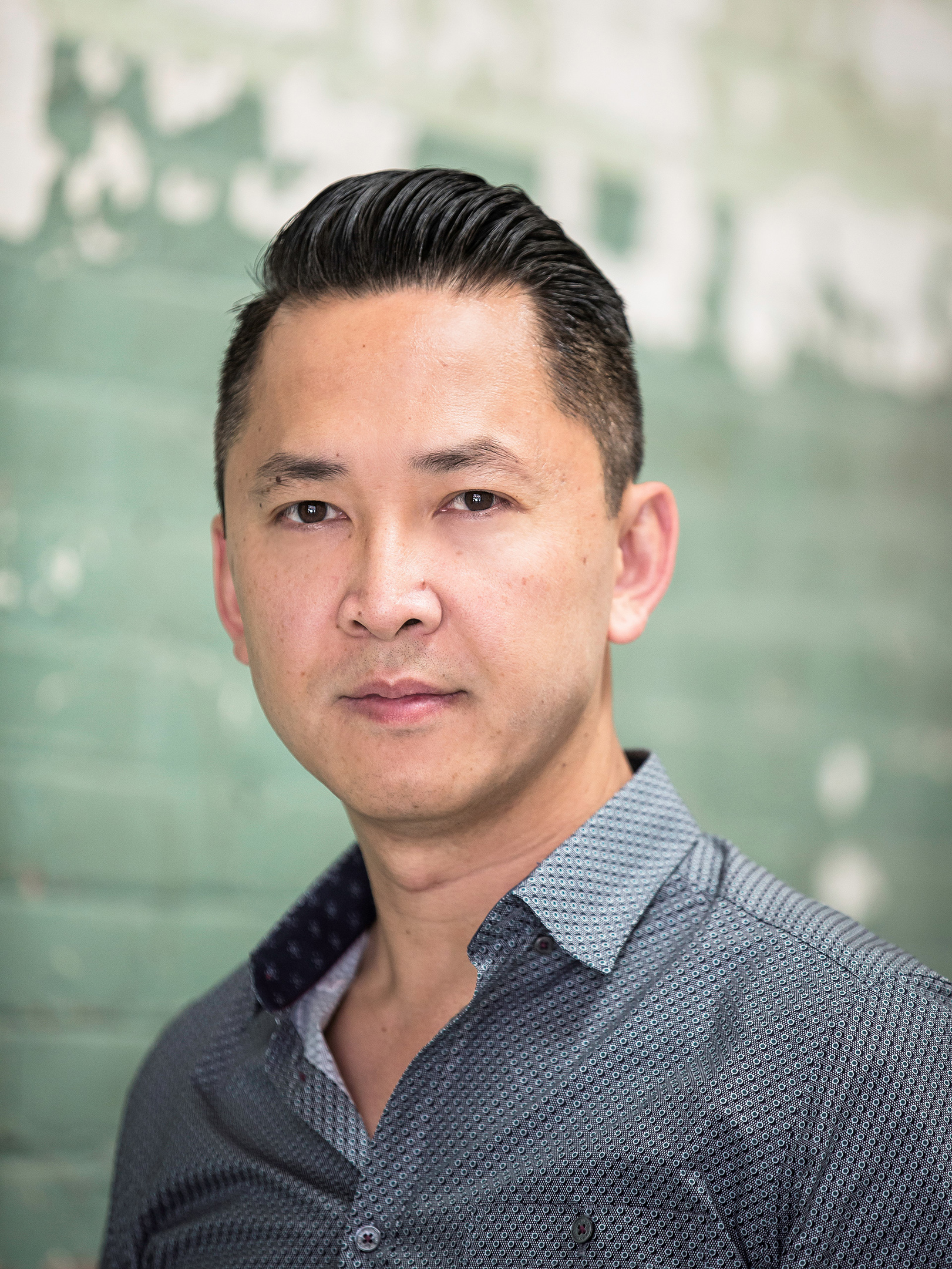Award-winning novelist Viet Thanh Nguyen and his family came to the US as refugees during the Vietnam War. Motivated by the one-sided movies and books of the war he grew up with, Nguyen’s work examines the legacy of that tumultuous time and its aftermath from a new perspective. His acclaimed debut novel, The Sympathizer, won the Pulitzer Prize, was a Dayton Literary Peace Prize winner, and made the finalist list for the PEN/Faulkner award. Join us as Nguyen reads from his latest novel, The Committed, and talks with Penn scholars Josephine Park and Dagmawi Woubshet about literature, culture, politics, and migration.
Book signing to follow.
Cosponsored by Penn's Department of English and Asian American Studies Program.
Viet Thanh Nguyen and his family came to the United States as refugees during the Vietnam War in 1975. As he grew up in America, he began to notice that most movies and books about the war focused on Americans while the Vietnamese were silenced and erased. He was inspired by this lack of representation to write about the war from a Vietnamese perspective, globally reimagining what we thought we knew about the conflict. The New York Times says that Viet Thanh Nguyen's novel, The Sympathizer, “fills a void…giving voice to the previously voiceless while it compels the rest of us to look at the events of forty years ago in a new light.” His voice is refreshing and powerful as he urges readers to examine the legacy of that tumultuous time and its aftermath from a new perspective. The audacious novel has also been described by The Guardian as having a “Whitman- like multiplicity” as it “reads like the absolute opposite of Tim O’Brien’s The Things They Carried.” The Committed, the long-awaited follow-up to The Sympathizer, was published in 2021 and has been called “a masterwork” and “revelatory.”
Viet’s book Nothing Ever Dies: Vietnam and the Memory of War was a finalist for the National Book Award. Author Ari Kelman praises Nothing Ever Dies saying it, “provides the fullest and best explanation of how the Vietnam War has become so deeply inscribed into national memory.” His collection of short stories, The Refugees, explores questions of immigration, identity, love, and family. In 2018, Viet called on 17 fellow refugee writers from across the globe to shed light on their experiences, and the result is The Displaced, a powerful dispatch from the individual lives behind current headlines, with proceeds to support the International Rescue Committee.
Viet was the recipient of a MacArthur “Genius” Grant. The MacArthur foundation noted that Viet’s work “not only offers insight into the experiences of refugees past and present, but also poses profound questions about how we might more accurately and conscientiously portray victims and adversaries of other wars.” Along with teaching at the University of Southern California, he works as a cultural critic-at-large for The Los Angeles Times. Viet lives in LA with his wife and two children.
 Josephine Nock-Hee Park is Professor of English and a member of the faculty steering committee of the Asian American Studies Program at the University of Pennsylvania. She specializes in modern and contemporary American literature and culture, with an emphasis on American poetry and Asian American literature. She is the author of Apparitions of Asia: Modernist Form and Asian American Poetics (Oxford 2008), which reads a modern history of American literary alliances with East Asia and was awarded the Literary Book Award by the Association for Asian American Studies, and Cold War Friendships: Korea, Vietnam, and Asian American Literature (Oxford 2016), which examines Asian American subjectivities shaped by wartime alliances in Korea and Vietnam. She is the co-editor of Asian American Literature in Transition, 1930-1965 (Cambridge 2021), with Victor Bascara, and Ezra Pound in the Present: Essays on Pound's Contemporaneity (Bloomsbury 2016), with Paul Stasi. She has served on the editorial boards of American Literature, The Journal of Asian American Studies, PMLA, and Verge: Studies in Global Asias.
Josephine Nock-Hee Park is Professor of English and a member of the faculty steering committee of the Asian American Studies Program at the University of Pennsylvania. She specializes in modern and contemporary American literature and culture, with an emphasis on American poetry and Asian American literature. She is the author of Apparitions of Asia: Modernist Form and Asian American Poetics (Oxford 2008), which reads a modern history of American literary alliances with East Asia and was awarded the Literary Book Award by the Association for Asian American Studies, and Cold War Friendships: Korea, Vietnam, and Asian American Literature (Oxford 2016), which examines Asian American subjectivities shaped by wartime alliances in Korea and Vietnam. She is the co-editor of Asian American Literature in Transition, 1930-1965 (Cambridge 2021), with Victor Bascara, and Ezra Pound in the Present: Essays on Pound's Contemporaneity (Bloomsbury 2016), with Paul Stasi. She has served on the editorial boards of American Literature, The Journal of Asian American Studies, PMLA, and Verge: Studies in Global Asias.
 A scholar of African American literature and art, Dagmawi Woubshet works at the intersections of African American, LGBTQIA+, and African studies. These overlapping areas of inquiry inform his scholarship and research, including his book The Calendar of Loss: Race, Sexuality, and Mourning in the Early Era of AIDS (Johns Hopkins University Press, 2015), and the co-edited volume Ethiopia: Literature, Art, and Culture, a special issue of Callaloo (2010). His writings have appeared in various publications including Transition, NKA: Journal of Contemporary African Art, The Atlantic, and African Lives: An Anthology. He is currently completing two book projects: James Baldwin and the Art of Late-Style, and the first English translation of Sebhat Gebre Egziabher’s 1966 Amharic novel, ሰባተኛው መላክ Säbatägnaw Mälak [The Seventh Angel]. Woubshet is an associate editor of Callaloo and has served on the Board of Directors of the Center for Lesbian and Gay Studies (CLAGS) at the Graduate Center, City University of New York. He has been a fellow at the Institute of Ethiopian Studies at Addis Ababa University (2010-11); a Scholar-in-Residence at the Modern Art Museum in Addis Ababa, Ethiopia, where he curated Julie Mehretu: The Addis Show (2016); and, most recently, he was the Inaugural Senior Fellow at the Africa Institute in Sharjah, UAE (2020-21). Before joining the University of Pennsylvania in 2017, Woubshet taught at Cornell University where he was named one of “The 10 Best Professors at Cornell.” He received his Ph.D. in the History of American Civilization from Harvard University and his B.A. in Political Science and History from Duke University.
A scholar of African American literature and art, Dagmawi Woubshet works at the intersections of African American, LGBTQIA+, and African studies. These overlapping areas of inquiry inform his scholarship and research, including his book The Calendar of Loss: Race, Sexuality, and Mourning in the Early Era of AIDS (Johns Hopkins University Press, 2015), and the co-edited volume Ethiopia: Literature, Art, and Culture, a special issue of Callaloo (2010). His writings have appeared in various publications including Transition, NKA: Journal of Contemporary African Art, The Atlantic, and African Lives: An Anthology. He is currently completing two book projects: James Baldwin and the Art of Late-Style, and the first English translation of Sebhat Gebre Egziabher’s 1966 Amharic novel, ሰባተኛው መላክ Säbatägnaw Mälak [The Seventh Angel]. Woubshet is an associate editor of Callaloo and has served on the Board of Directors of the Center for Lesbian and Gay Studies (CLAGS) at the Graduate Center, City University of New York. He has been a fellow at the Institute of Ethiopian Studies at Addis Ababa University (2010-11); a Scholar-in-Residence at the Modern Art Museum in Addis Ababa, Ethiopia, where he curated Julie Mehretu: The Addis Show (2016); and, most recently, he was the Inaugural Senior Fellow at the Africa Institute in Sharjah, UAE (2020-21). Before joining the University of Pennsylvania in 2017, Woubshet taught at Cornell University where he was named one of “The 10 Best Professors at Cornell.” He received his Ph.D. in the History of American Civilization from Harvard University and his B.A. in Political Science and History from Duke University.



